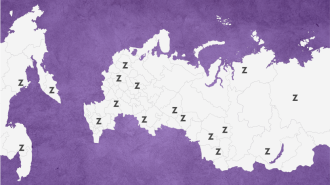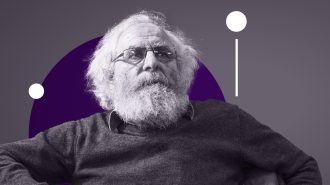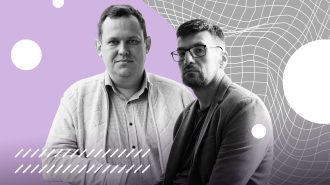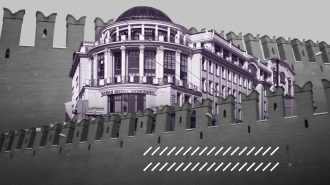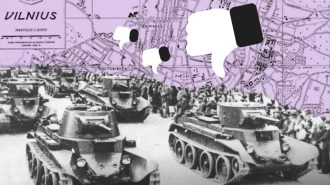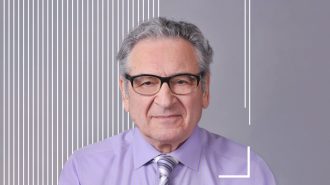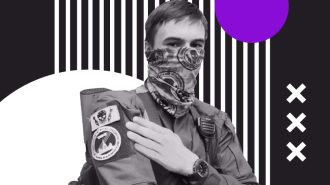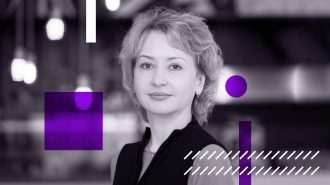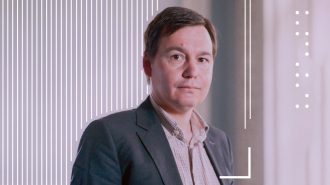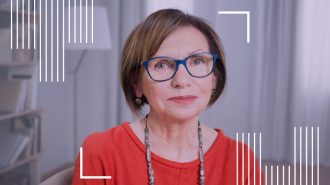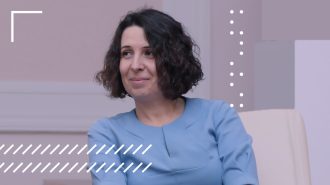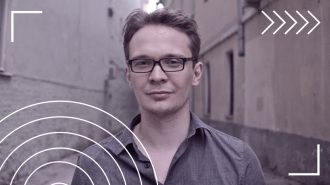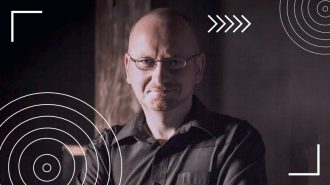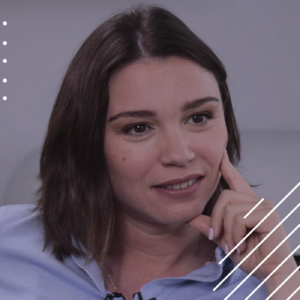At the end of June, acting Rector of the Russian State University for the Humanities named Andrey Loginov, ex-Deputy Minister of Justice of Russia. This happened against the backdrop of a public scandal around the “Higher Political School” named after Ivan Ilyin, headed by Alexander Dugin, created at the university. T-invariant analyzed Loginov’s biography and found that he has no less importance than Ilyin and Dugin, grounds to claim the title of the main ideologist of the “Russian world”.
Universities
Who are they - convinced patriots who brought the advance of the “Russian world” closer? Or banal opportunists who took advantage of the situation for mercantile purposes? T-invariant presents the results of a study of the biographies of heads of universities located in the occupied Ukrainian territories.
Even before the war with Ukraine, about 150 young Russian scientists became Fulbright scholarsand got the opportunity to study at American universities. In March of this year, the IIE and Cultural Vistas organizations sponsoring the program were declared undesirable in Russia. T-invariant looked into what awaits fellows in their home countries and what alternatives young scientists see for themselves.
In the third year after the start of Russia’s full-scale invasion of Ukraine, journalism faculties and media departments at all universities in the country changed their policies. the transfer of experience to novice journalists from military officers, Z-bloggers and even former prisoners has become regular and widespread.
February 24, 2022 is a date that divided the lives of millions of people into before and after. Millions of Ukrainians became refugees, hundreds of thousands of Russians were forced to leave the country, thousands of people became political prisoners. Schools and universities have been invaded by Z-ideology. This gave rise to a new Russian reality, which more than 75 sociologists, historians, demographers and economists studying Russian society tried to comprehend.
How did the idea come about to build an “island of academic intelligence” using Google Quantum? How to create conditions under which students will pursue science and not a career? Explains the initiator of the PhD program in quantum condensed matter physics QT Future at the University of Ljubljana Mikhail Feigelman.
Behind the names in the “Chronicle of the Persecution of Scientists”, which is jointly conducted by T-invariant and CISRUS, there are specific people forced to fight for their civil and academic freedoms. We decided to tell in detail who and why decides to go against government pressure in science and education. The first material focuses on the history of Novokolledzh, one of the largest colleges in Russia.How did the institution begin to work, despite the refusal of accreditation and the resignation of the director, candidate of historical sciences Sergei Chernyshov? Why do the new director Yuri Lobanov and Sergei Chernyshov himself not give up their professional and civic positions? Yulia Chernaya spoke with the former and current leaders of Novocollege - Sergei Chernyshov and Yuri Lobanov.
Why did the Higher School of Economics find itself in the worst position among all the new famous universities that emerged in post-Soviet Russia? At what point did the era of solidarity with state ideology begin at the university? Was the pressure on Yaroslav Kuzminov pressure on the university itself or on the head of the Central Bank of the Russian Federation, Elvira Nabiullina? What are the reasons and consequences of including the HSE on the sanctions list? Explains former vice-rector of the National Research University Higher School of Economics Andrei Yakovlev.
Is it possible to say that the USSR annexed Lithuania? Why was the contract with the emigrant professor officially terminated? What do other teachers and students of Vilnius University, as well as Andrey Desnitsky himself, think about this? T-invariant tried to understand how such issues should be resolved from the point of view of the norms of the academic community.
On October 14-15, the annual RASA conference will be held in Chicago. This year it is dedicated to the 150th anniversary of the birth of Sergei Rachmaninov. We discussed what Rachmaninov’s creative experience of emigration teaches, why his works were banned and allowed to be performed again in the USSR, and whether classical music will stand the test of time in a conversation with the honorary speaker of the conference, the conductor who performed all of Rachmaninov’s works, professor, Director of the Orchestra Northwestern University Music Biehnen School Viktor Yampolsky. Interviewed by Olga Orlova.
At Moscow State University, a student organization of Z-activists is raising money for ammunition and equipment for ultranationalists fighting Ukraine, using the official support of the university's law faculty. T-invariant has found out that the founders of the association are the son and daughter of Yuri Trutnev, Deputy Prime Minister of the Russian Federation.
In 2023, the Georgy Gamow Prize will again be awarded to two scientists. The organizer, the Russian-American Association of Scientists (RASA), announced the start of the collection of nominations. This year, the Gamov Prize committee was chaired by Cambridge (UK) professor Natalia Berloff.
Sociologist of Science Mikhail Sokolov gives a prediction for T-invariant. What kind of historical experiment is being conducted on scientists left behind in Russia, and why a scandal will erupt when GPT-chat starts re-checking textbooks in Russian.
Irina Savelieva, former director and one of the founders of the A.V. Poletaev Institute for Humanitarian History and Theory Research at the National Research University Higher School of Economics, talks about the rise, heyday and end of the famous institute, the impact factor, the «5-100» program and the academic kitchen of the Higher School of Economics.
«I will not go back: I cannot work in a country that is at war with its neighbors,» Yelena Bunina, CEO of Russia's Yandex, wrote to colleagues in early March 2022 and did not return to Russia from vacation. Today, Elena Bunina, a professor at Bar Ilan University talks about the losses and gains of the past year.
The Prosecutor General's Office of the Russian Federation announced that the Free University had been given the status of an undesirable organization. «Our censors and persecutors are a little too late,» believes Kirill Martynov, co-founder of the Free University. He even sees some pluses in the new status.
The coming down of the Iron Curtain makes it more difficult to understand what is happening in Russia, and there is a growing need for specialists in Russian studies in Europe. Historian Marek Příhoda spoke about the new Russian-language Master's program at Charles University and the specifics of the Czech vision of Russia.
Charles University opens a Master's program in Russian. Why it was in demand amidst the war, explains Zhanna Nemtsova, co-director of the Boris Nemtsov Academic Center at the Faculty of Arts of Charles University.






